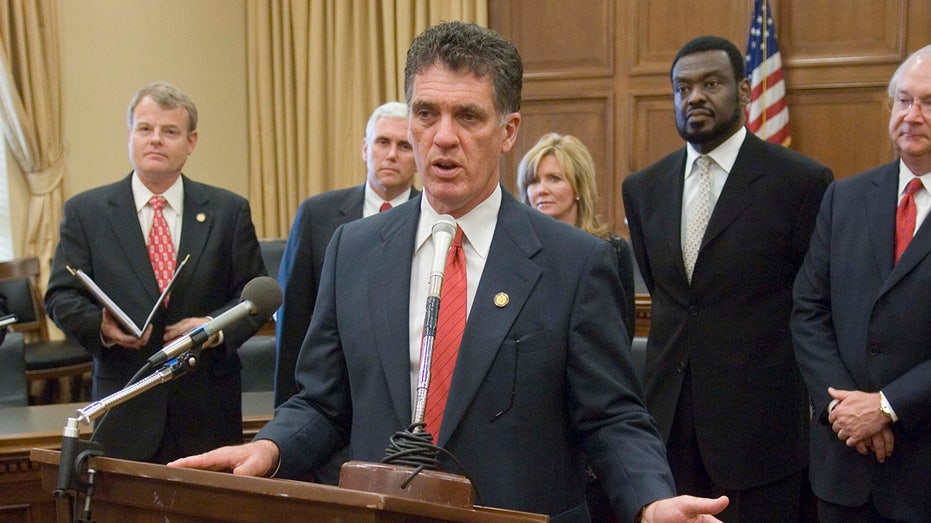Harris risks losing crucial battleground state due to Biden's gas export pause, as Dems plead to change course
Kamala Harris is facing a growing chorus of bipartisan pressure to undo Biden's LNG pause ahead of Election Day, or risk her chances in the must-win swing state of Pennsylvania.

Vice President Kamala Harris is facing growing pressure from within her own party to lift the Biden administration's pause on liquified natural gas (LNG) exports amid growing fears that the moratorium could cost the Democratic Party presidential nominee the crucial battleground of Pennsylvania — a natural gas powerhouse.
Pennsylvania's 19 electoral votes are considered critical to winning the White House. Its reputation as a slightly left-leaning swing state, which former President Donald Trump carried by a razor-thin margin of just 0.7% in 2016, is complicated somewhat by its status as a major producer of fossil fuels.
"It's obvious that the pathway to the presidency goes through Pennsylvania," Amanda Eversole, the chief operating officer of the American Petroleum Institute, told Fox News Digital.
FOX NEWS MEDIA PROPOSES TRUMP-HARRIS PRESIDENTIAL DEBATE IN PENNSYLVANIA
The chorus of Democrats now criticizing the moratorium is something of an about-face from January, when the Biden administration first ordered its temporary halt on new LNG exports, citing a need to better evaluate the environmental and economic impacts of such projects.
Now, nine months later and less than a month away from Election Day, Harris is under pressure from some Democrat lawmakers and industry leaders to lift the pause completely.
Critics of the pause argue that removing or delaying U.S. LNG supplies from the market deprives European buyers of a cleaner, lower-emission form of energy — forcing some countries to turn to Russian gas or coal instead.
It could also affect U.S. relationships, American energy leadership and investments in massive domestic projects in the years ahead.
Pennsylvania is the second-largest producer of natural gas in the U.S., behind Texas. Its gas reserves are contained behind shale rock and must be extracted by fracking — a technology viewed as controversial at best by many on the left and one that Harris has only recently endorsed.
FOX NEWS POWER RANKINGS: THE BIGGEST SURPRISES COME AFTER OCTOBER
The fossil fuel industry supports more than 423,000 jobs in Pennsylvania, and contributes more than $75 billion to its economy, according to estimates from PwC. Therefore, the future of the LNG industry carries outsize importance to most voters, industry group leaders and former DOE officials told Fox News in a series of interviews.
In fact, Pennsylvania's Democratic Senate delegation, Sens. Bob Casey and John Fetterman, were among the first lawmakers to criticize the LNG pause following Biden's announcement earlier this year. Their counterparts in the House have also followed suit as they seek reelection in competitive districts.
Meanwhile, Dave McCormick, the Republican candidate hoping to flip Casey's seat this fall, has lambasted the Democrat incumbent for failing to do enough to protect energy interests in the state. A spokesperson for Casey's office pointed Fox News to the senator's earlier letters and remarks opposing the LNG pause.
A recent poll published by API this month found that 85% of voters in Pennsylvania wanted to hear more from both Harris and Trump about their energy polices.
To date, Harris has declined to comment on whether she will lift the LNG pause, and neither the campaign nor the White House responded to Fox News’ requests for comment.
FOX NEWS POLL: VOTERS CITE HIGH PRICES AS BIGGEST MOTIVATOR TO VOTE
If Harris does intend to break with Biden or push for an end to the pause and unleash more production, API's Eversole said Harris needs to make that clear — and fast.
"If she, in fact, is going to be different from the Biden administration," Eversole said, "then specifically how?"
Rhetoric, she said, is not enough. Especially when private investors in the U.S. have also backed out of some projects in recent months, citing regulatory uncertainty.
"We need to get shovels in the ground," Eversole said. "We need to be able to build more infrastructure, can move safely, move our product, and we need to be able to make long-lived investments."


